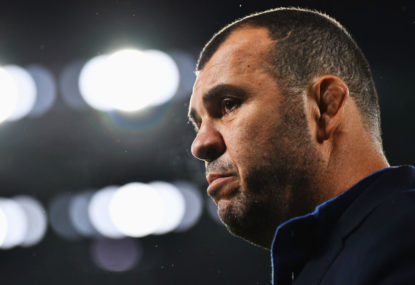A season that started poorly, then turned positive mid-stream, has finished on a low for the Wallabies, humiliated by Scotland at Murrayfield by a record 53-24 scoreline.
Coming on the back of last week’s late capitulation to England, these final 90 poor minutes fairly highlight the Wallabies’ deficiencies, but it would be an overreaction to define their season entirely by this finish and to lose faith in all that is Australian rugby as a result.
For a start, Scotland is no longer emerging as a top-flight team – they have arrived. Despite losing their talisman Stuart Hogg before the match, they were composed in the way they saw off Australia’s early pressure, before visibly growing in self-belief, through a vastly superior maul and willing ball movement.
Typically, Scotland out-enthuse sides but suffer in skill execution. Not any longer! Coach Gregor Townsend is building nicely on Vern Cotter’s foundations; he has a canny leader in John Barclay and is developing impressive squad depth and strength in key positions – playmaker Finn Russell an obvious example.
Given that Scotland’s approach was no surprise, it was puzzling to see the Wallabies concede the initiative. An opposition that thrives on the energy garnered from increasing confidence levels needs to be taken on and stifled at the breakdown, not allowed the free licence afforded the Scots in this match.
But if the Wallabies’ tactical approach was questionable, it was evident that energy levels – Sean McMahon excepted – weren’t sufficient to match Scotland anyway. Too many first-up tackles were missed, and the Wallabies were vulnerable up the middle and on the edges throughout.
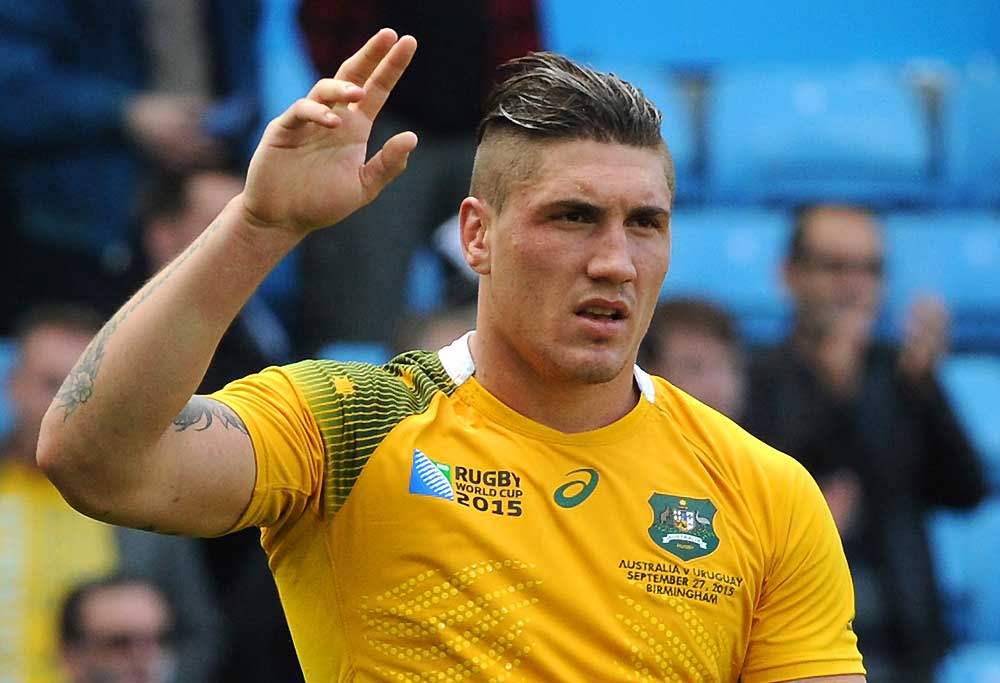
(AP Photo/Rui Vieira)
The low point – among many – came in the 74th minute when Barclay nonchalantly strode through a three-man tackle for a try under the posts. Karmichael Hunt, Lukhan Tui and Tevita Kuridrani, all seemingly leaving it to each other, again spoke to a lack of urgency in Australia’s game.
There has been an overreliance on a small number of players who have played long minutes this year. Will Genia, Michael Hooper and Bernard Foley stand out, with Genia spluttering on low-grade Ethanol right from the start of this match.
While lack of player depth in their positions is not Michael Cheika’s doing, it is incumbent on him to develop players and ensure their readiness for Test rugby. In that context, the number of minutes played by Joe Powell is instructive, as is the decision not to bring an alternative flyhalf into the squad.
At least change will be forced upon Cheika at hooker, Stephen Moore ending his career in less-than-stellar circumstances. If his final match was one to forget, nobody gets to play 129 Tests by accident, and Moore can at least reflect on his long service as Wallabies skipper, and Saudi Arabia’s most capped player, with pride.
Sekope Kepu’s 39th-minute red card was a key moment but an easy decision for French referee Pascal Gauzere. Who knows what possessed Kepu to launch himself like that, but apologists for Cheika’s behaviour last week might care to consider how it is problematic to expect the playing squad to act with discipline if the coach holds himself to different standards.
Despite this heavy defeat, the wheels falling off the end of the Wallabies season does not warrant overreaction. The instinct to ride every ebb and flow is understandable, but the progress of any rugby side is not linear, and in the context of Cheika’s tenure, it is a disappointment, not Armageddon.
Fitness levels have improved, the scrum is solid and the Wallabies attack has evolved to the point where they are as potent with the ball as any side in world rugby. The emergence of Marika Koroibete, Jack Dempsey, Jordan Uelese and Isaac Rodda, among others, bodes well for next year and beyond. Skill development under the eye of Mick Byrne must be persevered with.
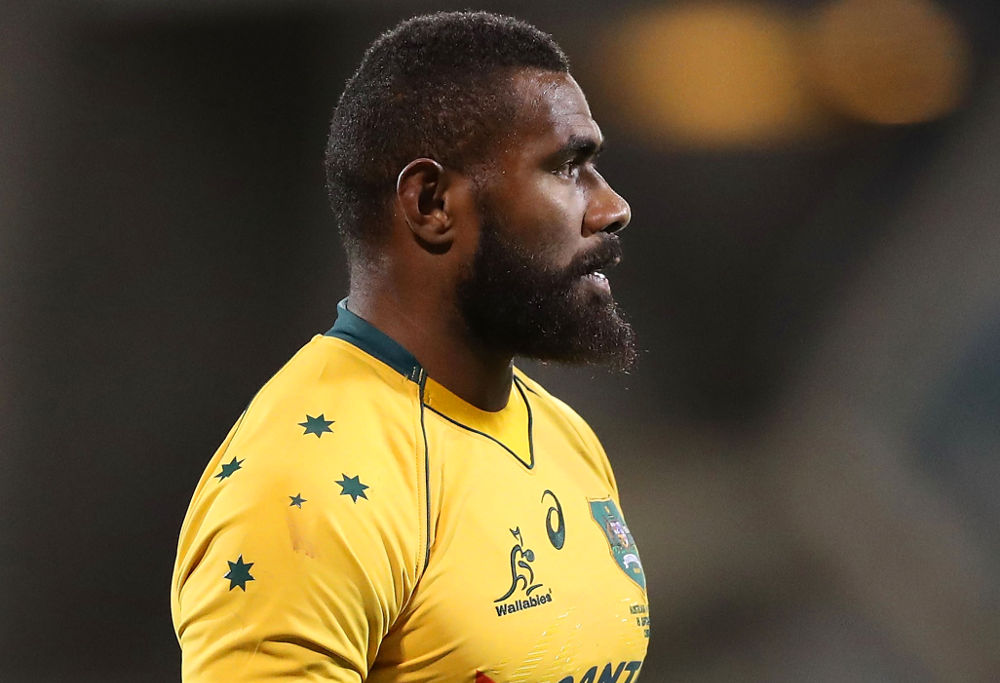
(Photo by Mark Metcalfe/Getty Images)
Calls for the head of the coach conveniently ignore the absence of any viable successor – particularly given the prevailing attitude to appointing a non-Australian coach after Robbie Deans was rejected.
Such calls also ignore the lack of currency Rugby Australia has, both in hard dollars and in the court of public opinion, to terminate the man they have invested their 2019 World Cup hopes in.
Far better for Rugby Australia to concentrate on repairing their standing with the rugby community and extracting better performances from their four remaining Super Rugby sides. This would serve a dual purpose of validating their reduction strategy, as well as providing much-needed confidence for the players.
The match ended on an interesting note, with Kurtley Beale sin-binned for deliberately batting the ball over the touch-in-goal-line, but referee Gauzere electing not to award a penalty try to Scotland. Not invoking the ‘invisible man’ interpretation – as Angus Gardner did against the All Blacks in Paris – was a triumph for clear thinking.
Yes, Beale’s indiscretion demanded sanction, but it didn’t automatically mean that the Scottish player was in position to score but for the foul. That there are two contrary interpretations demands clarification from World Rugby. But if common sense is any guide, my money is on the Frenchman having it right.
All Blacks’ fans are accustomed to their side playing for long periods without the ball, however for most of the first half in Cardiff, it seemed as if their side was riding a death wish, repeatedly kicking the ball back to Wales and inviting them to try out their new ball in hand game.
This was no better illustrated by Aaron Smith’s strange decision, with only seconds remaining in the first half, to field a kick-off and kick to a line-out only 20 metres upfield.
The right defensive play was to take a couple of phases, exhaust time and then kick the ball out. The attacking play was to run at back at a potentially unwary defensive, thinking about half-time. Smith’s option was neither, just more ‘rope-a-dope’, which Wales, to their credit, clinically took advantage of.
The commonly held logic is that the All Blacks are going through a necessary regeneration and rebuilding phase, but with Beauden Barrett again declining to impose himself on the game from flyhalf, there is a feeling that some of their stutters are due as much to questionable decision-making as they are to inexperienced personnel.
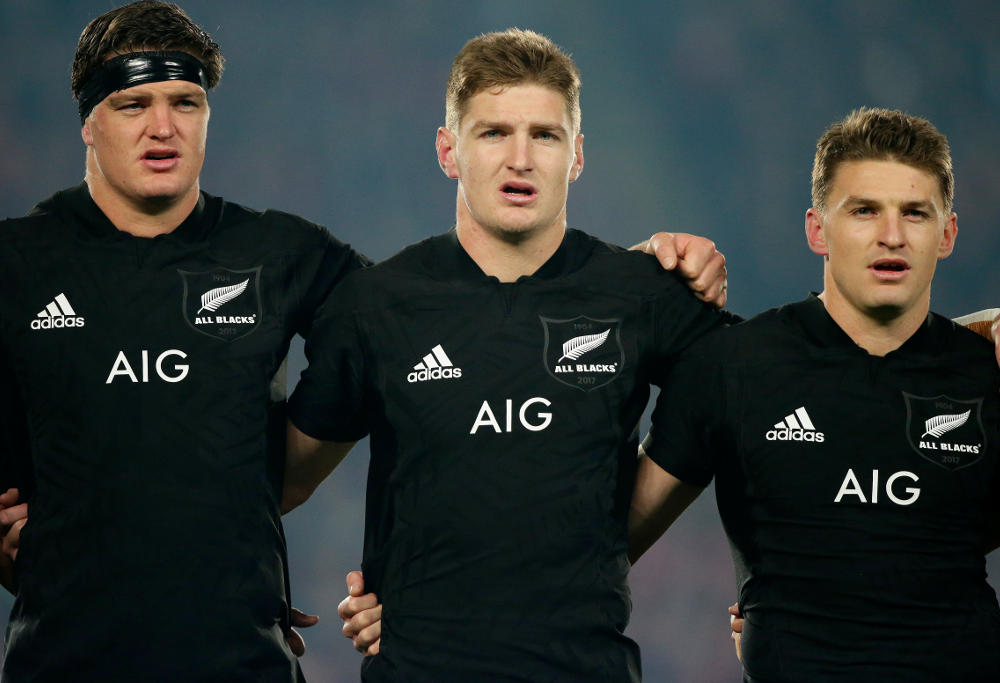
(AP Photo/Mark Baker)
Perhaps the All Blacks felt Wales wouldn’t hurt them with the ball, or would cough up counter-attacking opportunities. But another consequence of electing to play without the ball was to negate one of their own strengths – taking Liam Squire’s running game out of commission.
In the end, the All Blacks found enough possession for their talented runners to make a difference. Reiko Ioane – as he has been all year – was sheer quality, his final try telegraphed for all to see a mile off, but impossible to stop regardless.
His selection as man-of-the-match was understandable, but my vote would have rewarded the superhuman effort of Sam Cane, who was a tackling machine in the face of the continued Welsh onslaught.
The All Blacks finish the year in a satisfactory position, with pundits everywhere pointing to a narrowing of the gap to the chasers, but the win/loss ledger still overwhelmingly in their favour.
For a nation with such high expectations, the drawn Lions series still feels like a loss, and there was a game dropped to the Wallabies too. But, with world-class strength like Brodie Retallick, Joe Moody and Ben Smith due to return refreshed, and young stars like Ioane and Asafo Aumua emerging, it will be a surprise if Steve Hansen has trouble sleeping over summer.
Wales too will take heart from the match, not yet totally convincing as a running side, but pleasingly well along the transition path.
One thing is for certain. Despite Italy’s stubborn refusal to advance their game, and France’s confounding form, all of England, Ireland, Scotland and Wales all have good reason to feel that they are in the ascendency.
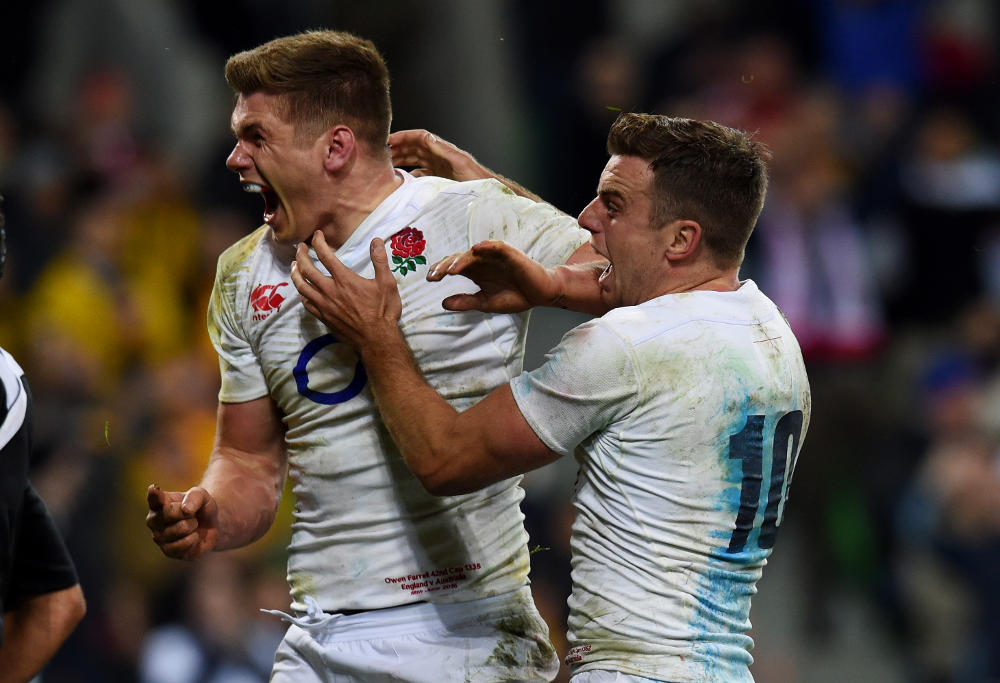
(AAP Image/Tracey Nearmy)
Four into one doesn’t go however, and the upcoming Six Nations tournament promises to be one of the best in memory.
This is true not only in terms of competitiveness, but also in playing style. If that battle has been won by the southern hemisphere, with the influence of New Zealand and Australian coaches to the fore, and Johan Ackermann now stoking up Gloucester, one of the reasons the gap between the north and south has closed is because most sides now closely resemble each other in their approach to the game.
Let us not also downplay the role of the refereeing fraternity in promoting an open, ‘ball in play’ style of rugby – this weekend, for example, both Gauzere and Wayne Barnes preferring to keep their distance and let the players get on with things.
With the World Cup – for better or worse – now dominating the rugby landscape, 2018 shapes as a fascinating year for all of the leading nations. Losses will be fobbed off as ‘rebuilding’ and wins taken as reinforcement that things are on track for Japan the following year.
With the gap between the top nations so thin, a combination of wins and losses is almost inevitable. Now, more than ever, this is a time for cool, wise heads, Australia included.





























































































